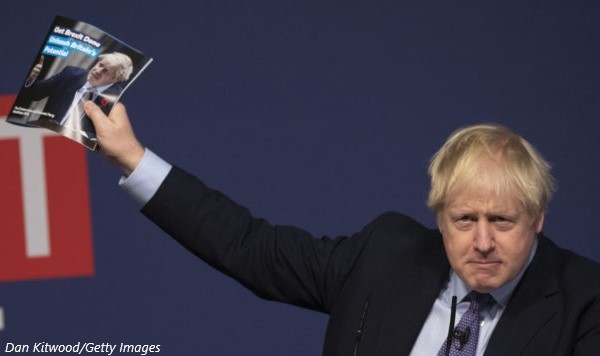The Tory plans to get housing done
It would have come as no surprise to anyone that the Conservative Party’s 2019 election manifesto focused on “getting Brexit done”. But, even if housing wasn’t the top of the party’s list of priorities, there were at least a handful of pledges.
It’s far from clear, though, that they will be enough to satisfy the industry, let alone campaigners looking to end the housing crisis.
Setting a target of building one million homes was intended to grab headlines.
However, this equates to just 200,000 new homes a year, which is lower than the current rate of building – although the intention is to reach 300,000 a year by the end of the next Parliament.
The manifesto itself contained little detail of where these homes would go or – at a time when the industry is worrying about skills shortages as high-skilled workers leave the country because of uncertainty about their post- Brexit status – who would build them.
It’s true there was a promise to simplify the planning system for “the public and small builders”, but whether this will extend to making the planning process easier for the wider industry is far from clear.
In fact, measures announced elsewhere in the manifesto suggest that delivering large numbers of new homes might become more difficult.
The pledge to “improve poor quality land, increase biodiversity and make our beautiful countryside more accessible for local community use” might make the system even more onerous, while a promise that infrastructure – roads, schools, GP surgeries – would have to be delivered before people can move into new homes could add to the risks facing developers.
And of course a further pledge to protect the green belt removes one possible source of new sites for housing.
Naturally, manifestos are designed to appeal to voters more than special interest groups – even groups as important as developers and housebuilders.
And this manifesto certainly contains a range of measures that the Tories hope will appeal to traditional and swing voters, including extending the Right to Buy to all housing association tenants (following a pilot in the Midlands), offering more support for those who want to self-build, and widening the Help to Buy scheme by offering 30% “First Home” discounts for first-time buyers.
There are also measures for renters, with a promise to end “no fault” evictions and to enable them to transfer the deposit from their current home to a new tenancy when they move.
Manifestos are campaign tools not academic papers, so we shouldn’t be surprised that this manifesto does not dwell on the nitty-gritty or the difficulty of delivering.
Either way, it’s clear that if the Conservatives get a majority in the new Parliament, the industry will need to build a dialogue with Ministers to ensure that the manifesto is interpreted in a way that encourages housebuilding.

Strategic land and site promotion
We work with strategic land developers and promoters, landowners and planning consultants to promote sites …

Energy and infrastructure
From new nuclear and unconventional gas to renewables, waste and airports, our team has worked …


